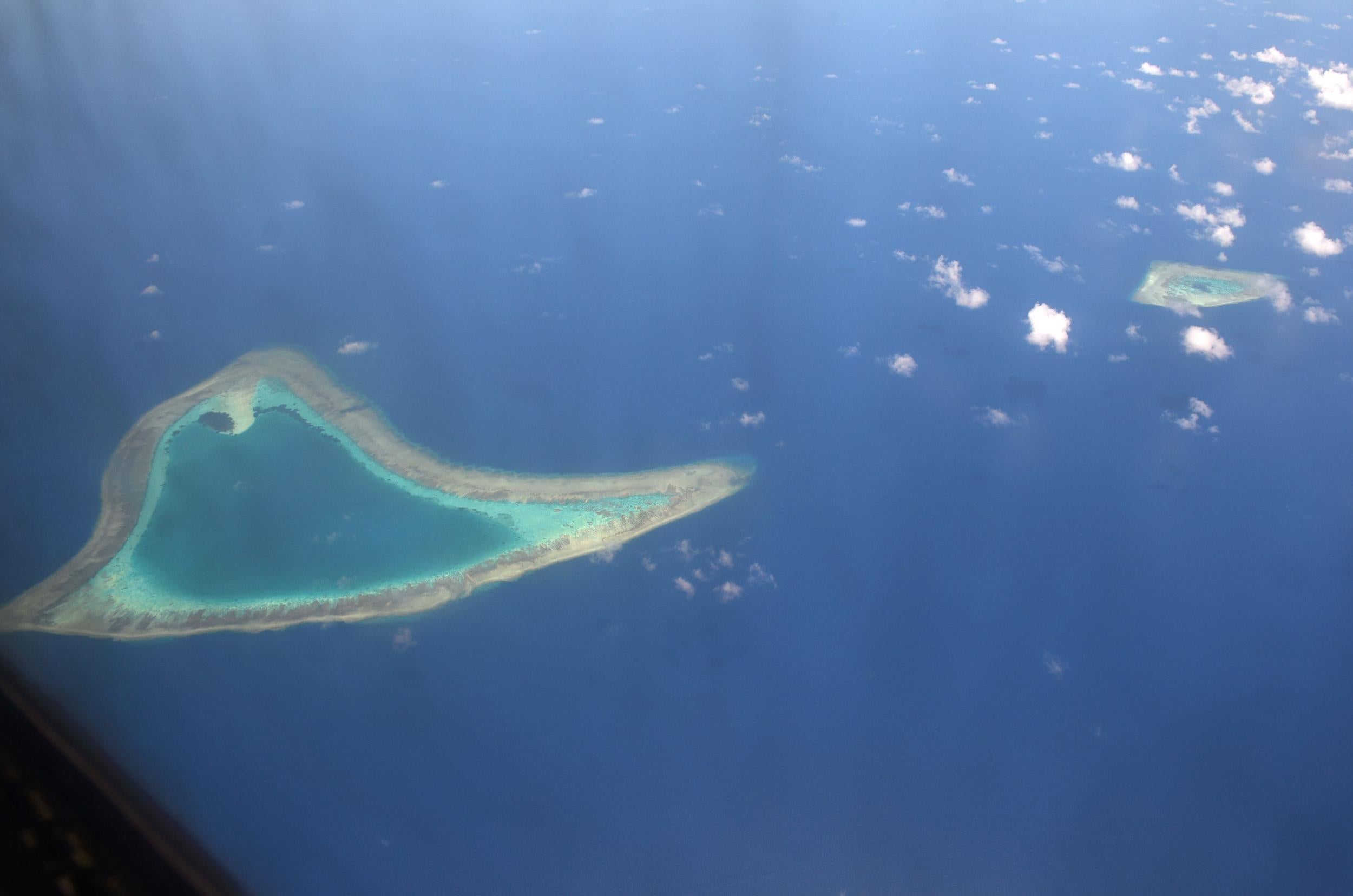US warns China over reported missile deployment in South China Sea
White House threatens 'near-term and long-term consequences'

The White House has issued a warning to China over its increased military presence in the hotly contested South China Sea.
"We're well aware of China's militarization of the South China Sea," White House Press Secretary Sarah Huckabee Sanders told reporters, adding that there would be “near-term and long-term consequences” for the country.
She did not specify what those consequences might be.
Ms Sanders was responding to reports that China had recently deployed missiles to three of the Spratly Islands – fortified outposts in the South China Sea where Vietnam, the Philippines, Malaysia, and Brunei have also claimed sovereignty.
The missile deployment has not been confirmed, but Chinese Foreign Ministry spokeswoman Hua Chunying said on Friday that deploying "necessary national defense facilities" to the islands was within China's rights.
"It has nothing to do with militarization," Ms Chunying said at a press briefing. "The US constantly strengthens its military deployment in the South China Sea ... they should consider the consequence of this.”

China has built up its presence on the islands more than any other country in the area, installing air bases, radar systems, and defence capabilities. On Tuesday, China’s aircraft carrier conducted drills with fighter jets in the area for the first time.
The anti-ship missiles that China is said to have installed in recent weeks can strike surface vessels within 295 nautical miles, according to CNBC. The surface-to-air missiles can reportedly strike aircraft, drones, and cruise missiles within 160 nautical miles.
If the reports are accurate, they would be the first missiles deployed to the area.
The US and other world powers have cautioned against the militarisation of the sea, which is a vital shipping channel and is thought to possess sizeable natural gas and oil deposits.
Australia's Foreign Minister Julie Bishop expressed concern about the news on Friday, telling Sky News that if the reports were correct, it “would be contrary to China's stated aspiration that it would not militarize these features”.
The Philippines gave a more muted response, owing to their “recently developed close relationship and friendship with China”.
“We are confident that those missiles are not directed at us,” said Harry Roque, a spokesmen for President Rodrigo Duterte, according to Reuters. “Be that as it may, we would explore all diplomatic means to address this issue.”
News of the deployment came amid heightened tensions between China and the US, as President Donald Trump threatened to impose some $50bn in tariffs on China – and President Xi Jinping threatened to retaliate in kind.
The US has also increased its freedom of navigation operations in the South China Sea under Mr Trump. China claims these operations are a violation of its sovereignty, and has threatened to step up their military presence in response.
US Navy Admiral Philip Davidson warned of China’s growing military presence in the area last month, telling the Senate Armed Services Committee that the country is “now capable of controlling the South China Sea in all scenarios short of war with the United States”.
"The only thing lacking are the deployed forces,” he said. “Once occupied, China will be able to extend its influence thousands of miles to the south and project power deep into Oceania.”
Join our commenting forum
Join thought-provoking conversations, follow other Independent readers and see their replies
Comments
Bookmark popover
Removed from bookmarks